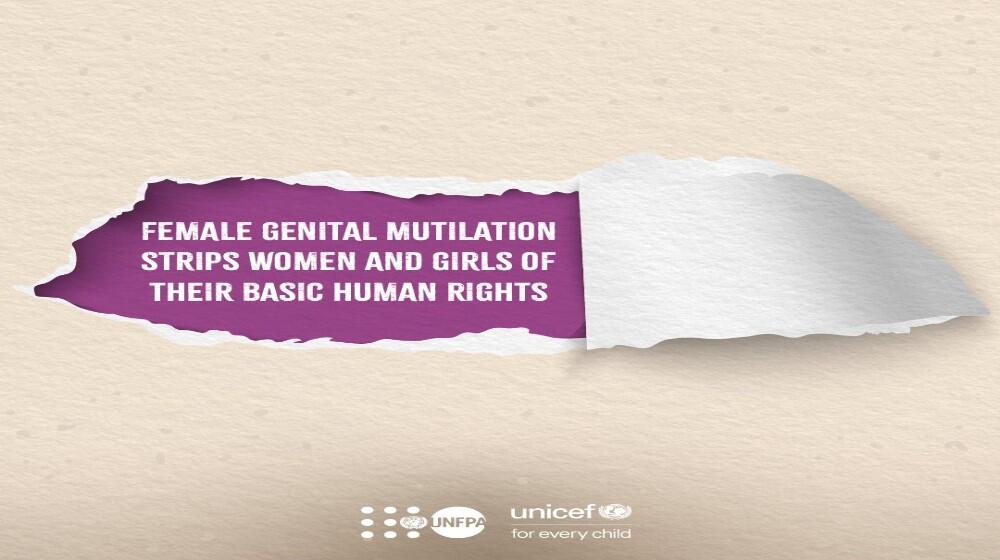FREETOWN, Sierra Leone, 6 February 2024 – On 6 February, the International Day of Zero Tolerance for Female Genital Mutilation (FGM), UNFPA Executive Director Dr. Natalia Kanem commended survivors who are leading the way to eliminating the harmful practice – one family, one community at a time. The day was observed globally under the theme: Her Voice. Her Future. Investing in Survivor-Led Movements.
A global joint statement by the Executive Directors of UNFPA, UNICEF, UN Women, the OHCHR High Commissioner and the WHO Director-General further affirmed that “female genital mutilation is a violation of women’s and girls’ rights, one that endangers their physical and mental health and limits their potential to lead healthy and fulfilling lives. It increases their risk of serious pain, bleeding and infections and the likelihood of other health complications later in life, including risks during childbirth, which can imperil the lives of their newborns.”
Speaking ahead of the international observation of zero tolerance day, Nadia Rasheed, UNFPA’s Country Representative in Sierra Leone, highlighted that the Sustainable Development Goals call for eliminating all harmful practices including FGM by 2030. She added that “while Sierra Leone has one of the highest rates of FGM globally, there has been a gradual decline in the practice with 83% of women and girls aged 15 - 49 reporting having undergone FGM in 2019, compared to 90% in 2013.”
She recognized the central role of women-led, youth-led and survivor-led organizations, and echoed calls for investing in survivor-led movements to accelerate progress to end FGM and to protect the rights and health of women and girls.
Adama Ibrahimatu Salamatu Konteh, a member of the UN Sierra Leone Youth Advisory Group, emphasized that FGM harms the childhood of girls and women. She added that “we need to end FGM so girls and women can live in dignity, free from violence, and realize their potential. Speak up even if you are not directly affected, it is very important that we create a world where everyone has zero tolerance for FGM."
Alimatu Dimonekene MBE, an FGM survivor and activist and founder of A Girl At A Time (SL), stated that “in the wake of the tragic deaths of three young girls, victims of the harrowing practice of FGM in Sierra Leone and beyond, we are confronted with an urgent call for action. The socioeconomic impact of this deeply rooted tradition on women and girls demands an unwavering commitment to change. The impact on the country and society is astronomical. In the face of economic and societal challenges faced by many in Sierra Leone, FGM remains a huge socioeconomic cost to the lives of many in Sierra Leone.”
To commemorate zero tolerance day in Sierra Leone, UNFPA convened a dialogue with young women and adolescent girls on 6 February to highlight their voices and perspectives, and partnered with the Forum Against Harmful Practices and the Human Rights Commission to support outreach.
About the United Nations Population Fund: UNFPA is the United Nations sexual and reproductive health agency. Our mission is to deliver a world where every pregnancy is wanted, every childbirth is safe, and every young person's potential is fulfilled.



